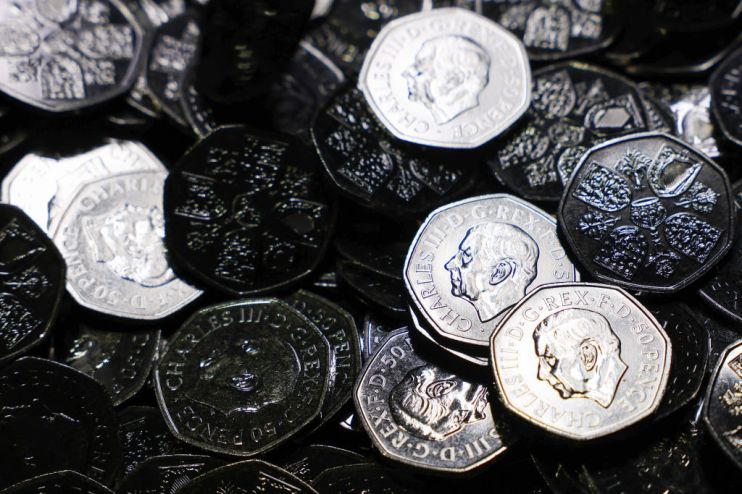A cash-based society isn’t just for the old, it’s for the young and foolish too

A fresh victim of pickpocketing, I found myself with only a £20 note and almost nowhere to spend it in our increasingly cash free world, writes Anna Moloney
I once considered myself a progressive young woman, but last week, when left phoneless and purseless after an ignoble pickpocketing while carrying my Christmas tree home, I was forced to reconsider. Out in the wilderness of central London, armed with a £20 note, I was faced with just how hostile our city has become to the use of cash and I, young and astute by traditional metrics, was left in the lurch.
A tube ride became an odyssey, and an inexplicably expensive one, with paper tickets more than double the price of tapping in and out. A single from London Bridge to Waterloo Station: a cold £6.70 with cash compared to £2.70 with card. Using the machine itself to secure your ticket is a test of persistence, with very few machines accepting cash and even fewer issuing change. Should you want a coffee to re-energize yourself after this saga, it’s mere chance if your coins are accepted with retailers, who are under no legal obligation to accept physical currency. If you want to get the bus, good luck; London buses are now cashless. Such disincentivizing of cash is intentional, with Transport for London planning to phase out paper tickets completely next year due to the costs associated with processing cash payments. While perhaps not headline news, this announcement, made earlier this year at the Transport Ticketing Global conference – the world’s largest public transport ticketing conference – was a blow at least to attendees.
Now, in an era marked by technological leaps and convenience-driven innovations, the rush towards a cashless society makes sense. Advocates argue that the transition is not only rational, but increasingly inevitable; only 15 per cent of transactions were made in cash in 2021, down from more than half in 2014, and the appeals of ease, efficiency and crime-prevention make a more than convincing case for the reasonably-minded. Even those arguments against a cashless society – namely, protection for the old and digitally averse – are based on a slowly disintegrating foundation. The case seems set: cash is dead and its mourners are dwindling.
But new data out last week showed something rather surprising: after a decade of accelerating decline, cash usage is now on the up. According to the British Retail Consortium, cash was used in 19 per cent of transactions last year, while separate data from UK Finance in September reported use of notes and coins had risen for the first time in ten years. Attributed both to the cost of living crisis (cash is often used to make budgeting easier) and a “natural return” for physical currency after the pandemic, the rise has been mostly written off as a blip. Debit payments are still dwarfing cash usage and UK Finance expects the downward trend to continue once again as soon as the economy gets back on track.
But perhaps we should not be so dismissive. Along with the reliance of more vulnerable groups on physical currency, privacy concerns and the rise of digital crime also make appealing arguments for the defence of cash as people become ever more concerned about their extensive digital footprints. Using cash affords us more privacy in our spending habits, a particular relief for those of us who’d rather the bank didn’t see our avocado budgets. For retailers, encouraging the use of cash also levels the playing field, with card fees a significant issue for many independent businesses, for whom smaller transactions are rendered barely profitable by additional charges for digital payments. While big chains can get away with this, for smaller businesses this is yet another increased cost tipping the balance against them.
There is, of course, another practical issue, albeit for a limited group of people who I counted myself amongst last week. Unbound by generation or GDP, they are, of course, the muppets. When cards jump out of back pockets (or onto Tube seats), it’s nigh on impossible to get by with just a tenner in hand. While the digitally averse may die out, the fool lives forever.
If none of these reasons appeal, and you’re not swayed by the pragmatics, let me appeal to the heart: cash has sentimental value.
Ho hum, you say, but is there not something sad about a completely tap in tap out world? Piggy banks, lucky pennies, coin machines, tooth fairies, wishing wells, notes in handshakes from genial relatives: a cashless world is one with considerably less whimsy, and that is something to mourn.